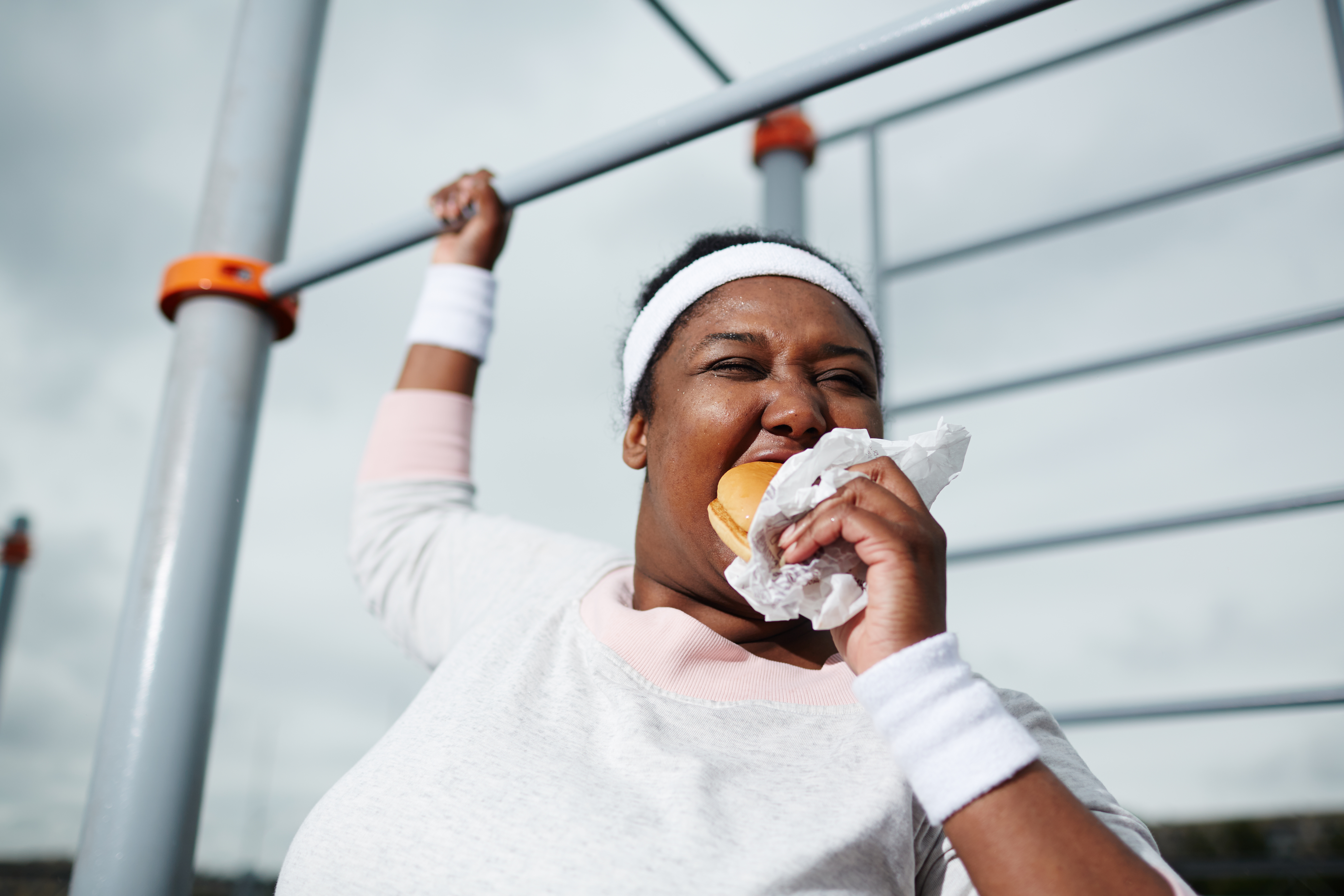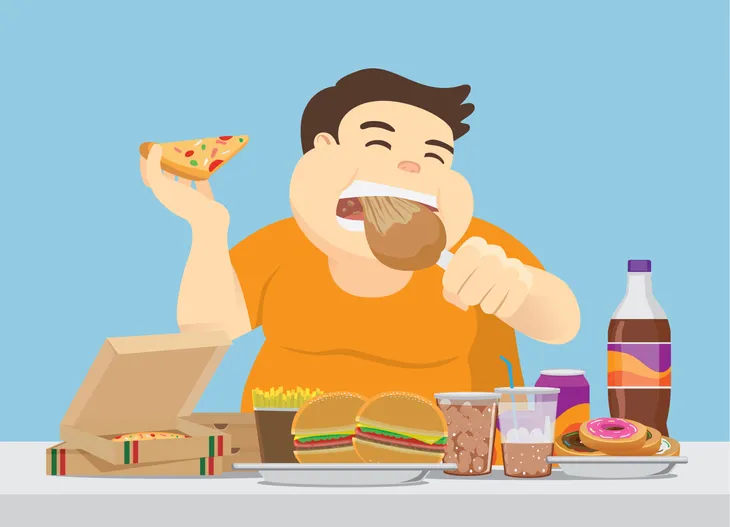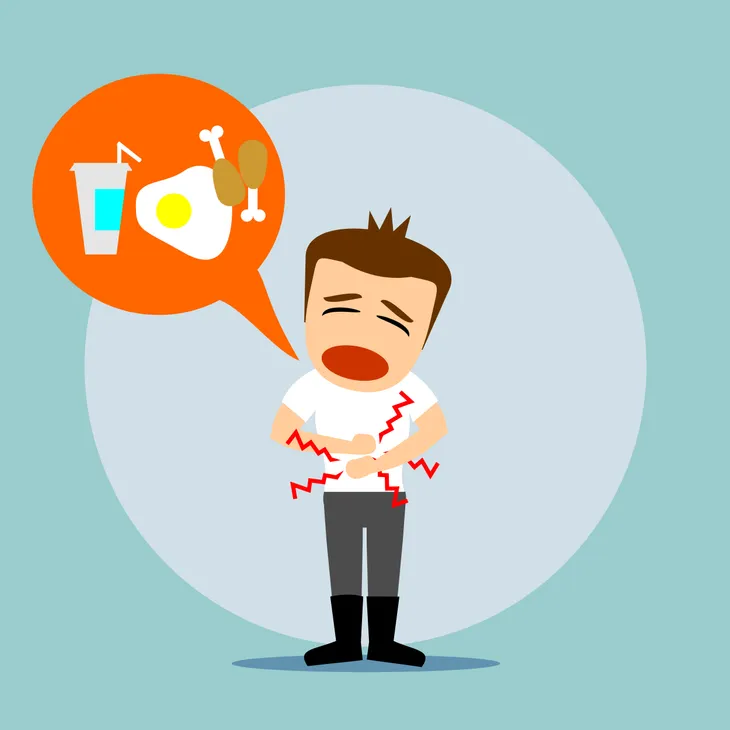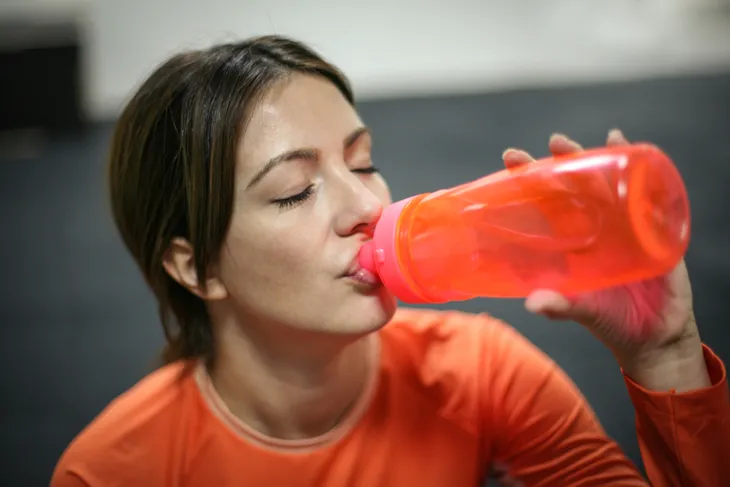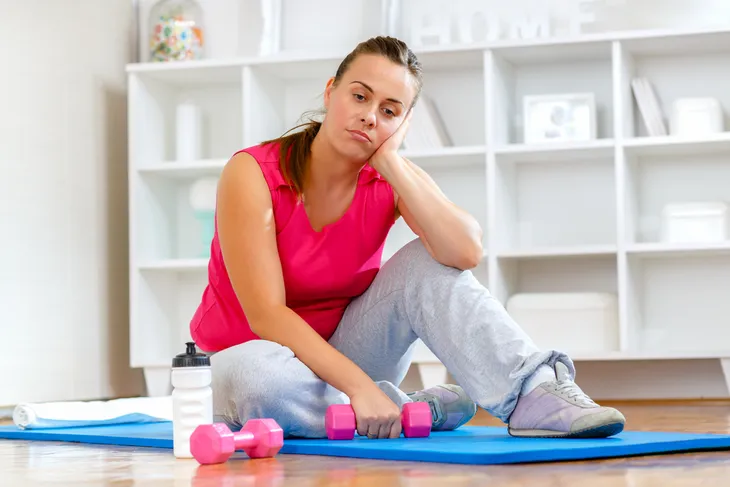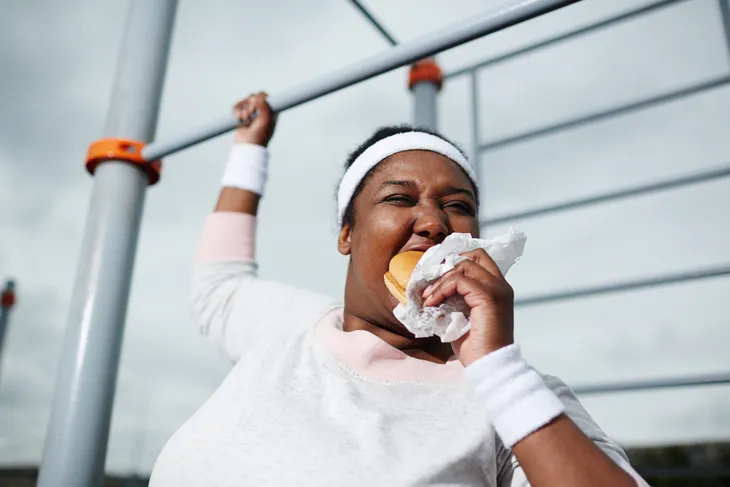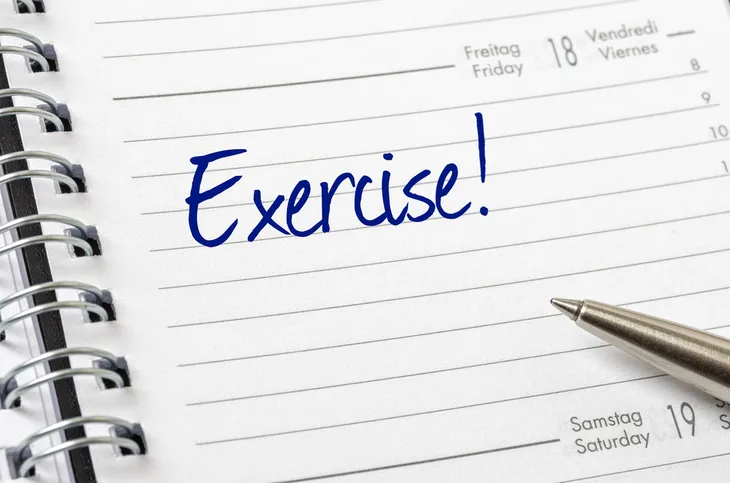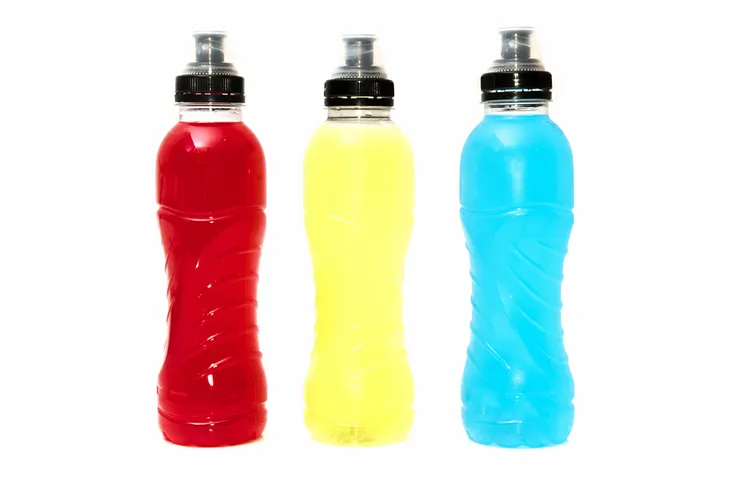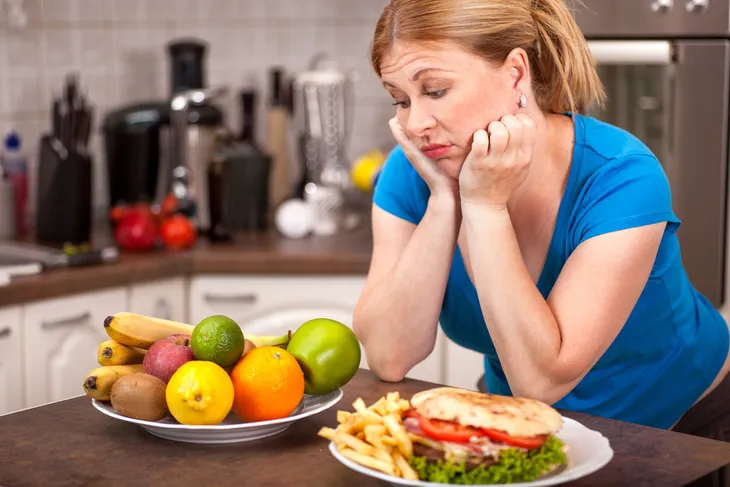It doesn’t matter how many healthy lifestyle choices you make, what you do post-workout could cause weight gain just as easily as maintaining weight or losing it. There are habits that can help you with your weight loss and fitness goals before and after workouts. However, just as many bad habits can not only hurt your chances of losing weight, but also end up causing weight gain.
In some cases, certain types of workouts and training will cause weight gain because of how much muscle you’re developing, so you shouldn’t stress about it if you’re reaching your muscle gain goals. But if the number on your scale keeps increasing when you’re exercising regularly and you don’t know why, consider these ten post-workout habits that cause weight gain—and learn how to kick these habits to succeed…
Calorie Overload
What and how much you eat after a workout matters. Most people know that protein and carbs are a good choice for the post-workout ritual. With the idea that you need to eat tons of food afterwards to refuel your body when its metabolism is high and you’ve burned so much energy, it’s easy to end up in calorie overload in an attempt to refuel. But working out doesn’t give you a free pass to down as many calories as possible after hitting the gym, and if you do this it could be the reason you’re gaining weight.
Instead of automatically eating the amount of calories you just burned right after, your best bet to refuel is to choose low-fat snacks with carbs and protein. You could also go for foods with fiber to help you stay full for longer while also meeting the needs of your body post-workout. Although you need to eat, unless you’re doing intense training for more than 30- to 60- minutes each day you don’t need a full meal after you exercise. You should be able to eat some snacks to refuel and go on with your regularly scheduled meals
Not Eating
While what you eat post-workout can cause weight gain, what you don’t eat can do the same. It can be difficult to wrap your head around the fact that you can gain weight from eating little or no food after burning so many calories and working your muscles, but it’s possible—and it happens more than you think. Not getting enough calories after working your body hard can actually increase fat storage. Your muscles will also suffer because your body needs fuel to keep you strong and your muscles healthy.
Eating carbs and protein post-workout helps with muscle development. Muscle plays an important role in losing weight because it impacts your metabolism. The more muscle you develop and the good habits you employ before, during and after a workout, the higher your metabolism will be. Giving your muscles what it needs right after you exercise will encourage healing and refueling, helping you lose weight. So kick the habit of not eating post-workout to reap the most benefits from your hard work and dedication to being healthy and exercising regularly.
Not Drinking Water
Dehydration is a common issue among athletes and health enthusiasts because of how it can impact your physical abilities and fitness goals, not to mention the avoidable but serious health risks. Your body sweats out a lot of water during your workout and you need to replenish. With the way water can affect your body and health, it’s not surprising that skipping hydrating post-workout is a bad habit that can cause weight gain.
Water affects how your muscles function and your body needs it to work properly. Not drinking water can cause you to store fat that should be burned instead. Being thirsty is also often confused with being hungry, so when you don’t drink enough water after your workout you can end up eating way too much and gain weight. Feelings of hunger can go on for hours when you’re not hydrated. The more you eat when you don’t need it, the more chance you have seeing the number on the scale rise. Your best bet is to stay hydrated all the time, including before and after workouts.
Drinking Alcohol
Hopefully there aren’t too many people who turn to the bottle right after exercising, but even if it’s hours later you could find yourself gaining weight regardless of your physical activity earlier that day. Many health professionals recommend avoiding alcohol completely, but it’s not realistic to think people don’t or won’t consume alcohol—even those super health-conscious enjoy a few cocktails now and then. You just need to recognize that alcohol can slow your body’s fat burning ability, so moderation is key.
The calories and sugar in alcohol can add up quickly and so it’s no surprise that having several drinks post-workout can cause weight gain. People often use exercise as an excuse to drink and end up consuming way too much, greatly decreasing how much fat your burn overall. Finding a balance so you aren’t doubling your caloric intake from alcohol on a regular basis is crucial to help encourage weight loss and achieve your fitness goals. So don’t use your workout as an excuse to binge drink because you’ll pay the price in pounds.
Skipping Stretching
It’s not that stretching in itself directly helps you to lose weight (or gain it if you skip it), but it can help you avoid muscle pain and discomfort, allowing you to stick to your planned workouts. Too many times people are injured from not stretching post-workout, yet more research is supporting the importance of it. If your body is too hurt the next day or for a few days following your workout, you’re likely to put off exercising—and risk gaining weight as a result.
Not stretching and the ensuing problems you’ll face can make it difficult to get back in the swing of things. In addition to the potential to be injured or too sore to follow your exercise schedule, stretching before and after a workout is good for your muscles. Using a foam roller is a good option to really stretch out and work out tense muscles, pressure points, and knots. Getting a good stretch in before and after your workout will make a noticeable difference, on top of ensuring you’re healed and ready for your next trip to the gym or exercise class.
Thinking You’ve Done Enough
Exercising can be intense and exhausting, and while there are hoards of fitness junkies out there who crave the endorphins, feelings of accomplishment, and happy moods that often follow their workout and keep them coming back for more, not everyone experiences this. In fact, a lot of people dread their workout and even the way they feel afterwards, and just as many complete a grueling class or bootcamp session and think they’ve done enough for the week. This mindset is a bad post-workout habit that causes weight gain.
It’s not that the hard work during exercise isn’t good for you, but it won’t help you reach your weight loss goals if you work out only once every week or two. Giving yourself a pat on the back is good, as long as you don’t use it as an excuse to put off exercising or eat that pint of ice cream in your freezer. Thinking one good sweat is enough so you’re free to eat and do (or not do) anything can easily cause make you pack on the pounds.
Rewarding with Dessert
Similar to the problematic mindset that you can eat as many carbs and calories as you want after a workout, it’s just as detrimental to view the post-workout as a chance to eat the dessert you’ve been eyeing—especially if you do it often. It’s extremely easy to gain weight through sugary, high-fat rewards after a session at the gym, and this habit will put a wrench in your goals to lose weight in trouble areas like your abdomen.
It’s also unhealthy to eat a lot of desserts, even if you work out and have a slim body. Just because you can’t see what that post-workout reward is doing, doesn’t mean it isn’t harmful to your health. Although it may seem like a broken record, moderation is key to being healthy and reaching your weight loss goals. If you have a hard time getting out of the bad habit of gorging on dessert after your workout, it’s even more important to try the moderation approach. Your cravings shouldn’t be as strong if you eat small amounts once and awhile, though it still requires willpower no matter how you handle cravings.
Avoiding Commitment
Being a commitment-phobe isn’t just bad for your personal relationships—when you avoid committing to your next workout, you could pay the price in added pounds. Post-workout bliss is great and should be something you embrace, so when you come down from your endorphin-high, make plans to do it again. You might even be more likely to commit right after your workout because of how good you’re feeling. Take advantage of your mood to help you maintain or lose weight.
People are more likely to follow through on workout plans if they actually schedule it. If you exercise at home, it’s best if you can set up a dedicated space. It will help you recognize that exercise isn’t just something you can do when you feel like it. For people with gym memberships, add your workouts to your schedule and actively choose to go to the gym by bringing your workout clothes with you to work, or head there before work. And if you have a really hard time committing to exercise, sign up for a class. You’ll feel obligated to go and guilt can be a positive influence.
Drinking Sports and Energy Drinks
Commercial after commercial shows well-known athletes downing sports and energy drinks during and after a workout. It’s not that these drinks are necessarily bad for you—though they can be depending on the situation and type of drink—it’s that your body often doesn’t need what’s in them. People with intense training require and benefit from the sugars and electrolytes but the average person exercising for an hour or less doesn’t. There are other ways to get electrolytes and to skip the sugar that could actually cause weight gain.
After long, intense training or after a race or competition, your body can properly digest the sugars by giving your muscles what they need. But other than these types of exercise, taking in too much sugar from sports drinks post-workout could detract from your hard work because your body will turn it into fat and store it. So instead of grabbing an energy or sports drink, eat snacks high in nutrients. You could benefit more from eating a healthy, nutrient-rich post-workout snack than an expensive sports drink.
Avoiding Veggies
It’s important to follow a healthy, balanced diet as often as possible, including post-workout. A key component to a healthy diet is vegetables, and avoiding them after a workout can cause weight gain. The problem is, many people are quick to turn to protein shakes or lose their self-control and gorge on unhealthy foods. Even if you’re one to go for the protein you’re missing out on the power of vegetables and their benefits. If your body doesn’t get the nutrients it needs to encourage proper functioning, refuel and heal after a workout, you’re at risk of gaining weight.
Vegetables are full of nutrients and post-workout your body is in the perfect state to absorb the many good things they offer— vitamins, minerals, carbs, and antioxidants. Instead of eating something unhealthy or just high in protein, get your carbohydrates through vegetables. The good thing is that you can eat vegetables in a lot of different ways, making it an ideal snack for even picky eaters. Some veggies and dips with carbs and plenty nutrients include spinach, hummus, sweet potatoes, broccoli, and carrots.
